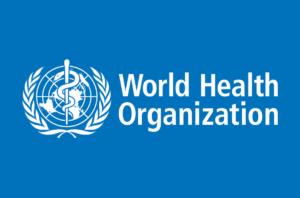
Course Developer: WHO.
Course duration: 1 hour.
Aim: To provide information on what facilities should be doing to be prepared to respond to a case of an emerging respiratory virus such as the novel coronavirus, how to identify a case once it occurs, and how to properly implement IPC measures to ensure there is no further transmission to HCW or to other patients and others in the healthcare facility.
Course Overview: COVID-19; Infection Prevention and Control
This course will cover the Infection Prevention and Control (IPC) measures required in order to:
- Be prepared and ready to respond to an outbreak, in particular, the one due to COVID-19.
- Limit human to human transmission by way of implementing WHO recommended IPC interventions.
- Identify, isolate and report suspect and confirmed cases.
- There are resources attached to each module to help you dive further into this topic.
Eligibility/Criteria
This training is intended for healthcare workers and public health professionals, as it is focused on infection prevention and control.
Key learning objectives:
Upon completion of this course, participants should be able to:-
- Define IPC and its role in the context of preparedness, readiness and response;
- Describe the current epidemiological COVID-19 situation, including case definitions and signs & symptoms;
- Describe source control, administrative controls and environmental and engineering controls;
- Describe the WHO-recommended IPC measures for health care facilities, including when dealing with suspect or confirmed COVID-19 cases;
- Describe additional IPC measures to be taken to assist in general preparedness within a health care facility.
Course Structure
This learning package consists of 3 modules with videos and downloadable presentations. The Course Contents are as follows:-
Module 1: Preparedness, readiness and IPC:
This module provides an overview of Infection Prevention and Control measures for preparedness and readiness.
Module 2: The novel coronavirus (COVID-19): its epidemiology, risk factors, definitions and symptomology:
Module 2 provides an introduction to the novel coronavirus (COVID-19).
Module 3: Standard precautions, transmission-based precautions & COVID-19 specific recommendations:
This module reviews various precautions which should be taken to prepare for and respond to COVID-19.
Certification
A PDF downloadable Confirmation of Participation (Certificate) is available to participants upon 100% completion of the course material.
About OpenWHO
OpenWHO is WHO’s new, interactive, web-based platform that offers online courses to people preparing to work in epidemics, pandemics and health emergencies or already doing so.
The OpenWHO platform delivers WHO’s and partners’ expertise closer to where it is needed and provides information in user-friendly formats for frontline responders and decision-makers. The platform is managed by the Learning and Capacity Development unit in the WHO’s Health Emergencies Programme.
Users take part in a worldwide, social learning network that is based on interactive, online courses and materials covering a variety of subjects. OpenWHO also serves as a forum for the fast sharing of public health expertise and in-depth discussion and feedback on key issues.
To enroll for this course click here.
Also Read:
WHO Online Course: COVID-19; Preparedness and Response.
FutureLearn Online Course: Managing COVID-19 in General Practice
FutureLearn Online Course: COVID-19; Tackling the Novel Coronavirus
FutureLearn Online Course: Bacterial Genomes; Antimicrobial Resistance in Bacterial Pathogens
 Healthveli
Healthveli



